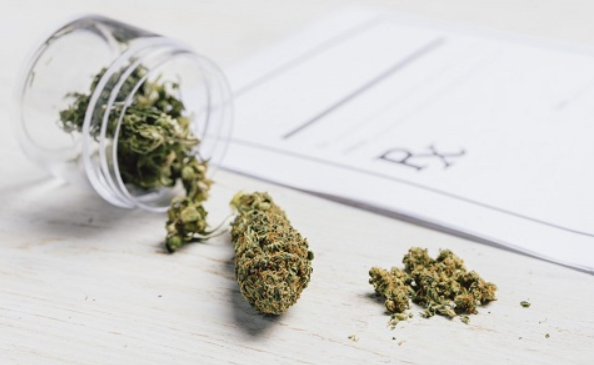UN Committee Finds MJ “Surprisingly” Effective and Safe as a Medicine
The World Health Organization (WHO) International Committee, a part of the United Nations, convened in Geneva, Switzerland, to review updated data on the therapeutic properties of the MJ plant. While WHO has long considered issuing recommendations to expand the use of MJ in medicine globally, previous attempts to revise its status have been unsuccessful. This time, however, the expert committee reached a somewhat different consensus regarding the plant’s properties.
Earlier this week, WHO representatives told the press that, after extensive discussions, the organization’s experts decided to confirm MJ’s status as a safe medicinal plant that can serve as a cheap and reliable alternative to many pharmaceutical drugs. In addition to reviewing scientific studies on MJ’s healing properties, the experts also considered real-life stories from people around the world who use MJ for self-treatment. After examining about 953 cases of successful MJ use in medical practice, submitted by patients from 31 countries, the committee agreed that MJ can be used as a safe and economical alternative to pharmaceutical drugs in treating a range of serious and chronic illnesses. Overall, the experts agreed that the appropriateness of using MJ for medical purposes should be determined by treating physicians, not by laws written by bureaucrats.
At the conclusion of the meeting, the WHO committee determined that MJ can be effectively used to treat chronic pain, heightened anxiety, sleep disorders, digestive system issues, and multiple sclerosis. Additionally, specialists noted the plant’s effectiveness in alleviating symptoms of chronic and age-related diseases.
Currently, about 2.2 million people in the United States could potentially use MJ and its extracts for self-treatment. Based on data from various countries, about half of patients in Israel and Canada use MJ to manage chronic pain, while at least 30% of British patients reported that MJ helps relieve symptoms of multiple sclerosis. It’s also worth noting that approximately 3 to 5% of the world’s population has tried MJ recreationally at least once in their lives.
MJ Reduces Opioid Use
The committee’s report notes that there is no significant demographic difference between groups who use MJ for therapeutic purposes and those who use it recreationally. In other words, the same age and social groups use MJ both medically and recreationally. One report presented to the WHO commission indicated that there are actually more therapeutic MJ users worldwide than recreational users. The report also noted that therapeutic users tend to have poorer health than recreational users, and that access to MJ significantly reduces rates of alcoholism and opioid abuse among the population.
Several other studies have also found an inverse relationship between legal access to MJ and abuse of alcohol and prescription drugs among patients. “Overall, the studies we reviewed describe MJ as an effective and non-addictive medical remedy, whose legalization dramatically reduces opioid abuse and overdose rates among the population,” said Dr. David Ores, a member of the WHO committee and a practicing physician in New York State. “In addition to treating chronic and severe illnesses, MJ also significantly reduces anxiety, improves patients’ mood, and enhances sleep quality.”
Removing Barriers to MJ Research
Despite the volume of reviews and studies examined by the experts, WHO committee representatives noted the slow pace of research on medical MJ. This lag is largely due to the widespread criminalization of MJ, which not only prohibits its cultivation and use but also strictly limits laboratory research. The experts pointed out the small number of clinical trials involving MJ, since such studies require a large number of volunteers, which authorities in many countries are unlikely to allow until MJ is decriminalized.
“In the US and many other countries, MJ research is hindered by health authorities and agencies that regulate psychoactive substances. Additionally, medical trials with MJ are often blocked by certain government officials and public organizations that support strict criminalization of the plant,” states the official WHO report released earlier this week. The report also notes that when authorities do allow medical MJ trials, scientists often have access only to low-quality MJ provided by local law enforcement, which can negatively affect research results.
An Effective and Safe Medicine
The WHO report draws the following conclusions about MJ’s properties and its widespread use as a medical remedy:
- MJ is an effective and safe remedy for alleviating symptoms of AIDS and cancer. Studies on Dronabinol and Marinol (synthetic concentrates of THC and CBD, respectively) found that cannabinoid oils not only reduce pain and nausea in patients but also improve their overall well-being and sleep quality.
- Various private and clinical trials have identified two main therapeutic effects of MJ: the ability to suppress different types and forms of pain, and a sedative effect that relaxes both the mind and body. Many doctors worldwide have noted the effectiveness of vaporizing MJ with vaporizers for treating neuropathic pain.
- Consuming small doses of MJ has proven effective in slowing the progression and easing some symptoms of Parkinson’s disease. Plant extracts significantly improved motor skills and memory in patients with moderate to advanced stages of the disease.
- Nabiximols, a synthetic blend of CBD and THC found in the popular MJ medication Sativex, is highly effective in treating muscle spasticity and early symptoms of age-related diseases like multiple sclerosis (as confirmed by trials in Canada and Israel).
- Committee experts also noted the effectiveness of certain cannabinoids in treating dementia and various neurological diseases that cause muscle spasms and loss of bladder control.



